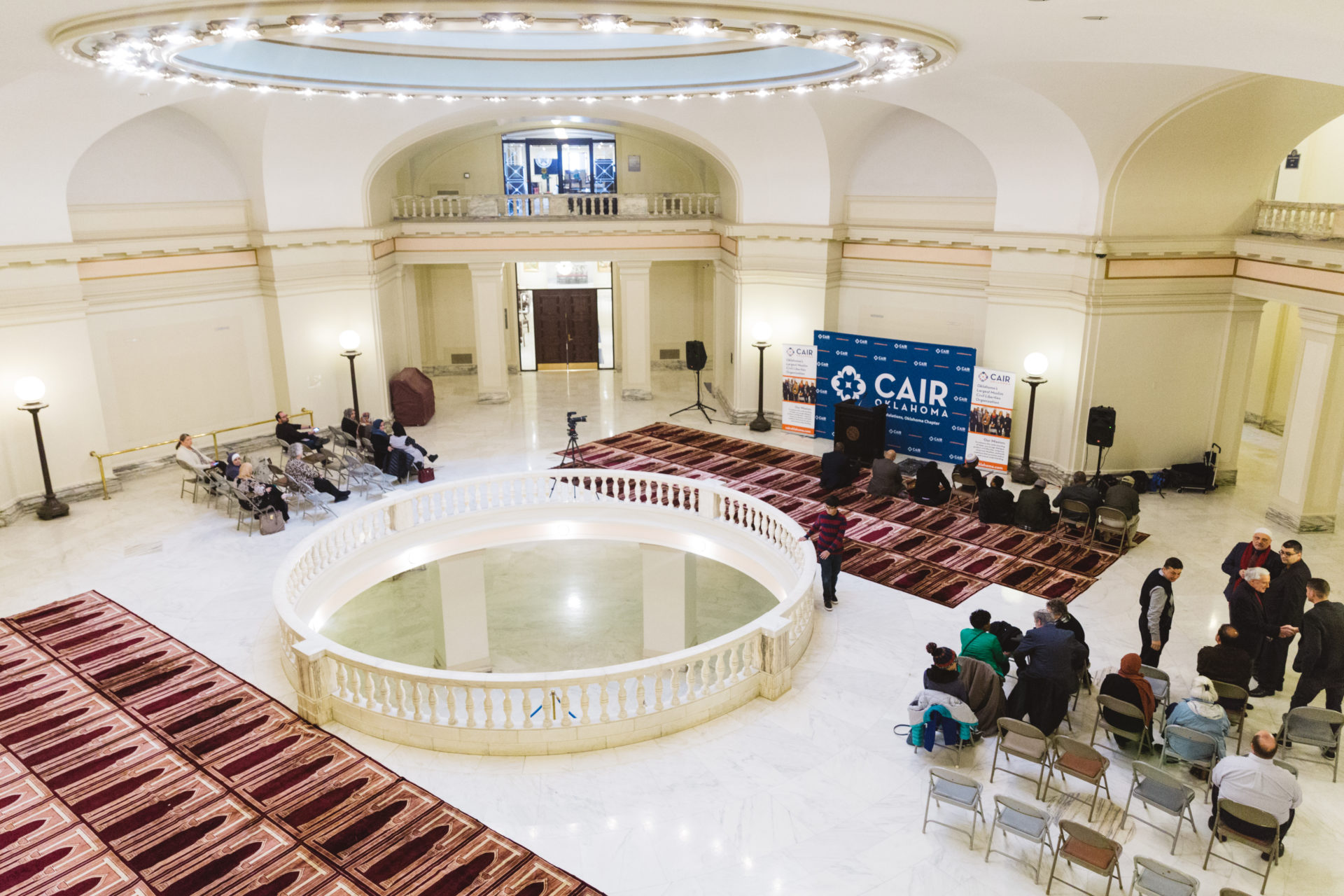We’re disappointed to hear an Oklahoma spiritual leader and head of a civil liberties and advocacy group were called terrorists at a recent House interim study at the state Capitol.
The two called out from the audience were Imam Imad S. Enchassi of the Islamic Society of Greater Oklahoma City and Adam Soltani, executive director of the Oklahoma chapter of the Council on American-Islamic Relations, according to a Tulsa World report.
The title of the Oct. 25 hearing was “Radical Islam, Sharia Law, the Muslim Brotherhood and the radicalization process.” Speakers probed “radical Islam,” its role in American politics and what states can do about it.
State Rep. John Bennett, R-Sallisaw, a Marine veteran who served in Iraq and Afghanistan, said the study was requested to prevent another terrorist attack in Oklahoma.
During the study, Enchassi hugged two attendees from other faiths in the audience. Enid residents may remember Enchassi from when he managed the local Furr’s Cafeteria in 1987.
Bennett asked the chairman of the Judiciary and Civil Procedure Committee, Rep. Randy Grau, R-Edmond, to admonish the huggers, but he did not, according to the World report.
“It’s a free country,” Enchassi reportedly said.
“I know,” Bennett replied. “I fought for it in two wars.”
In a statement, Soltani criticized Bennett for wasting taxpayer money demonizing the Oklahoma Muslim community.
Meanwhile, Chamber of Commerce leaders from Oklahoma City and Tulsa warned that focusing on social issues could harm Oklahoma’s economic development.
“This is a workforce talent attraction aspect, and being able to attract talent,” Brien Thorstenberg, Tulsa Regional Chamber’s senior vice president of economic development, told KGOU. “They want diversity, and they want inclusion. And that is almost in all major companies’ core values.”
This reminds us of the costly crusade against Sharia Law. In 2013, a federal judge permanently banned a constitutional amendment that would have prohibited Oklahoma courts from considering Islamic law when determining court cases. Our state had to pay more than $300,000 in legal fees over that mistake.
This kind of lawmaking is not practical. Government can’t pigeonhole people, painting everyone with the same broad brush. If you alienate or marginalize a socio-economic group, how are honest, hardworking people supposed to be connected enough to report serious security concerns perpetrated by those actually intending to do harm?
We hope this ill-conceived interim study isn’t a precursor of more bad legislation to come. Facing another massive budget shortfall, the Oklahoma Legislature shouldn’t waste time majoring in the minors.

